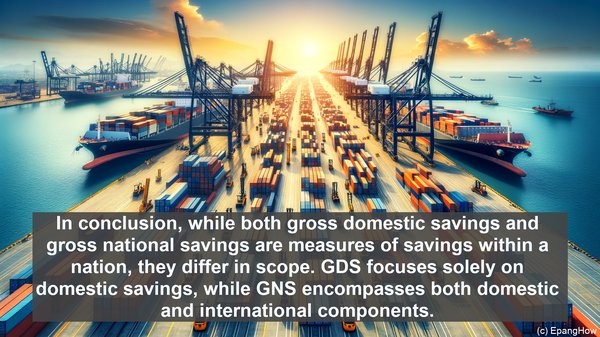Introduction: The Importance of Savings in National Economy
Hello and welcome! When it comes to assessing the economic health of a nation, savings play a pivotal role. They are not only an indicator of financial prudence but also a crucial source of funds for investment and future growth. Today, we’ll be exploring two key concepts in the realm of national savings: gross domestic savings and gross national savings.

Defining Gross Domestic Savings
Let’s start with gross domestic savings or GDS. As the name suggests, GDS refers to the total savings within a country’s borders. It encompasses the savings of individuals, businesses, and the government. GDS is calculated by subtracting consumption expenditure from the national income, taking into account factors such as personal savings, retained business profits, and government surpluses.

Understanding Gross National Savings
Moving on to gross national savings or GNS. Unlike GDS, GNS takes into consideration not only the savings made within the country but also those made by its residents abroad. This includes the savings of citizens working overseas, such as remittances sent back home. GNS is a broader measure of a nation’s savings, as it captures both domestic and international components.
Factors Influencing the Difference
Several factors contribute to the disparity between GDS and GNS. One key aspect is the presence of foreign investments within a country. If a nation attracts significant foreign direct investment, it can lead to a higher GDS, as these investments are considered part of the domestic savings. However, they may not contribute to the GNS, as they are not made by the country’s residents.
Significance and Implications
Both GDS and GNS provide valuable insights into a nation’s economic landscape. GDS reflects the savings behavior and investment potential within the country, while GNS offers a more comprehensive picture, considering the global dimension. Discrepancies between the two indicators can highlight the impact of international factors on a nation’s savings. For instance, a significant difference may suggest a reliance on external sources for funding, which can have implications for economic stability.
